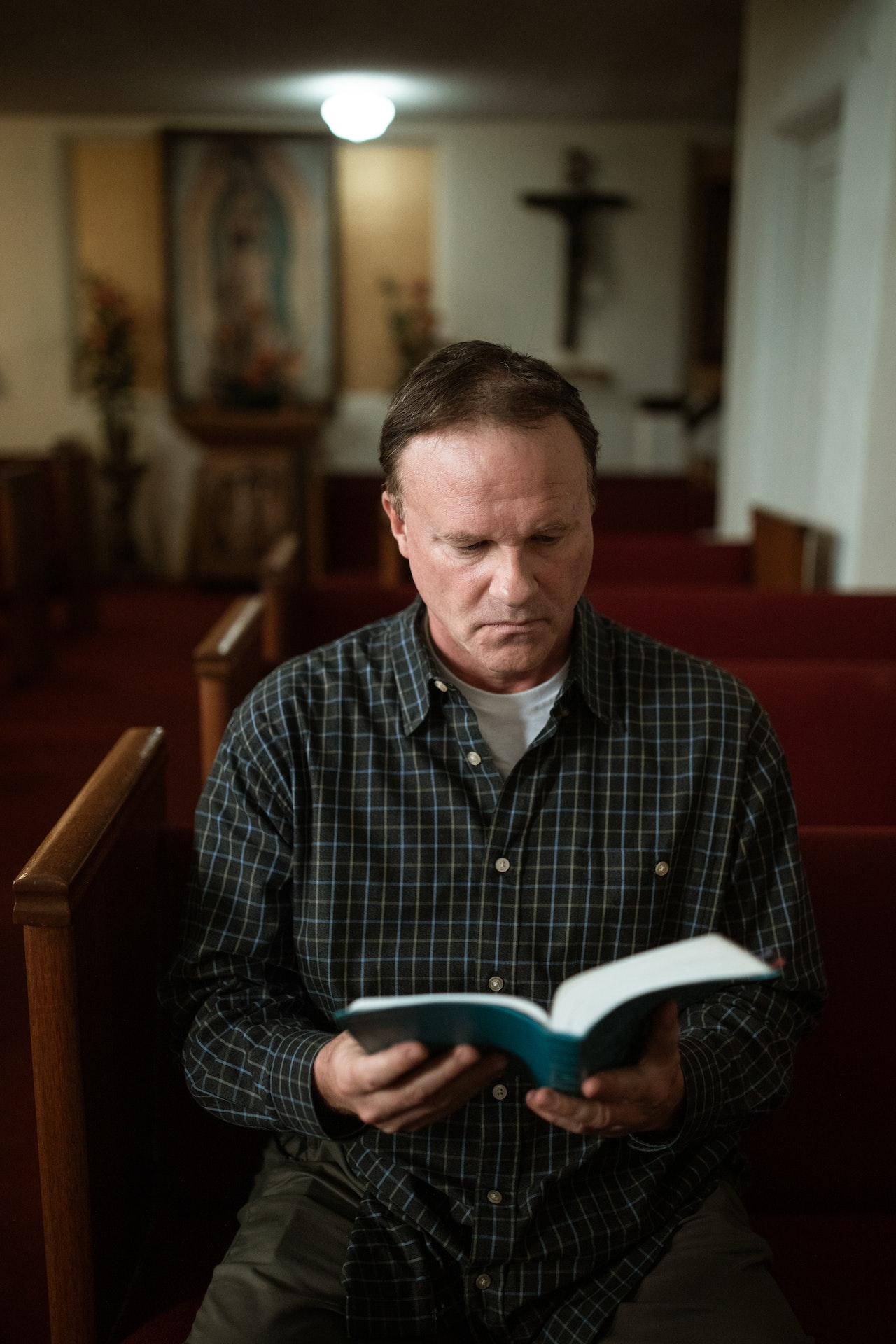Orthodox Christianity and Evangelical Christianity are two distinct branches within the broader Christian faith. While both share a belief in Jesus Christ as the Son of God and the importance of the Bible, they differ in various aspects of theology, worship practices, and church structure. This introduction aims to provide a brief overview of the key differences between Orthodox and Evangelical Christianity.
Table of Contents
Historical Differences between Orthodox and Evangelical Christianity
Orthodox Vs Evangelical: Historical Differences between Orthodox and Evangelical Christianity
When it comes to Christianity, there are various denominations and branches that have evolved over the centuries. Two prominent branches that often come up in discussions are Orthodox and Evangelical Christianity. While both share a common foundation in the teachings of Jesus Christ, they have distinct historical differences that have shaped their beliefs and practices.
Orthodox Christianity traces its roots back to the early days of Christianity, with its origins in the Eastern Roman Empire. It is deeply rooted in tradition and places a strong emphasis on the authority of the church and its sacraments. The Orthodox Church believes in the importance of apostolic succession, meaning that the authority of the church is passed down through the generations from the apostles themselves.
On the other hand, Evangelical Christianity emerged during the Protestant Reformation in the 16th century. It was a response to what many reformers saw as corruption and abuses within the Catholic Church. Evangelicals emphasize the authority of the Bible as the sole source of religious truth and salvation. They believe in the importance of a personal relationship with Jesus Christ and the need for individuals to accept him as their savior.
One of the key historical differences between Orthodox and Evangelical Christianity lies in their approach to worship. Orthodox worship is highly liturgical and follows a set order of prayers and rituals. The focus is on the sacraments, particularly the Eucharist, which is seen as the central act of worship. Icons and sacred images are also an integral part of Orthodox worship, serving as aids to devotion and reminders of the presence of God.
In contrast, Evangelical worship tends to be more informal and spontaneous. It often includes contemporary music, lively singing, and passionate preaching. The emphasis is on personal expression of faith and the proclamation of the Gospel. Evangelicals believe in the power of the Holy Spirit to transform lives and bring about spiritual renewal.
Another significant difference between Orthodox and Evangelical Christianity is their understanding of salvation. Orthodox Christians believe in a process of salvation that involves both faith and works. They see salvation as a lifelong journey of transformation and participation in the life of Christ. Good works and adherence to the commandments are seen as essential for salvation.
Evangelicals, on the other hand, emphasize the concept of “faith alone” for salvation. They believe that salvation is a free gift from God, received through faith in Jesus Christ. Good works are seen as a response to God’s grace but are not necessary for salvation. Evangelicals often stress the importance of a personal conversion experience and the need to share the Gospel with others.
Despite these historical differences, it is important to note that both Orthodox and Evangelical Christians share a common belief in the divinity of Jesus Christ, the importance of prayer, and the centrality of the Bible. They also both strive to live out their faith in their daily lives and seek to spread the message of God’s love and salvation.
In conclusion, Orthodox and Evangelical Christianity have distinct historical differences that have shaped their beliefs and practices. Orthodox Christianity places a strong emphasis on tradition, sacraments, and the authority of the church, while Evangelical Christianity emphasizes the authority of the Bible, personal faith, and the need for a personal relationship with Jesus Christ. Despite these differences, both branches share a common foundation in the teachings of Jesus Christ and a desire to live out their faith in the world.
Theological Distinctions between Orthodox and Evangelical Beliefs

Orthodox Vs Evangelical: Theological Distinctions between Orthodox and Evangelical Beliefs
When it comes to religious beliefs, there are numerous denominations and sects that have their own unique perspectives and interpretations. Two such groups that often find themselves in theological discussions are the Orthodox and Evangelical Christians. While both share a common belief in Jesus Christ, there are distinct differences in their theological perspectives that set them apart.
One of the key distinctions between Orthodox and Evangelical beliefs lies in their understanding of authority. Orthodox Christians place a strong emphasis on tradition and the authority of the Church. They believe that the Church, guided by the Holy Spirit, has the authority to interpret Scripture and establish doctrine. This emphasis on tradition is rooted in the belief that the early Church fathers, through their teachings and writings, have preserved the true faith. In contrast, Evangelical Christians prioritize the authority of Scripture above all else. They believe that the Bible is the inspired word of God and the ultimate authority in matters of faith and practice. This emphasis on Scripture alone is often referred to as sola scriptura.
Another theological distinction between Orthodox and Evangelical beliefs is their understanding of salvation. Orthodox Christians view salvation as a process that involves both faith and works. They believe that salvation is a lifelong journey of transformation and sanctification, where believers cooperate with God’s grace to grow in holiness. This perspective is often summarized by the phrase “faith working through love.” On the other hand, Evangelical Christians emphasize the concept of “faith alone” for salvation. They believe that salvation is a free gift of God’s grace, received through faith in Jesus Christ alone. Good works are seen as a natural outpouring of genuine faith, but they do not contribute to one’s salvation.
The sacraments also play a significant role in the theological distinctions between Orthodox and Evangelical beliefs. Orthodox Christians recognize seven sacraments, including baptism, chrismation, Eucharist, confession, marriage, holy orders, and anointing of the sick. They believe that these sacraments are visible signs of God’s grace and are essential for the spiritual life of believers. In contrast, Evangelical Christians typically recognize only two sacraments: baptism and the Lord’s Supper (also known as communion). They view these sacraments as symbolic acts that commemorate the work of Christ, rather than as channels of grace.
Furthermore, the understanding of the Church itself differs between Orthodox and Evangelical beliefs. Orthodox Christians see the Church as the mystical body of Christ, with a visible hierarchy and apostolic succession. They believe that the Church is the means through which God’s grace is transmitted to believers. Evangelical Christians, on the other hand, view the Church as a community of believers who gather together for worship and fellowship. They emphasize the priesthood of all believers and do not place as much importance on the visible structure and hierarchy of the Church.
In conclusion, while Orthodox and Evangelical Christians share a common belief in Jesus Christ, there are distinct theological differences that set them apart. These differences can be seen in their understanding of authority, salvation, sacraments, and the Church. Understanding these distinctions can foster respectful dialogue and promote a deeper appreciation for the diversity within the Christian faith.
Worship Practices: Contrasting Orthodox and Evangelical Traditions
Orthodox Vs Evangelical: Worship Practices – Contrasting Orthodox and Evangelical Traditions
When it comes to worship practices, Orthodox and Evangelical traditions have distinct differences that set them apart. While both traditions are rooted in Christianity, their approaches to worship reflect their unique beliefs and cultural backgrounds. In this article, we will explore the contrasting worship practices of Orthodox and Evangelical traditions, shedding light on the diverse ways in which these two branches of Christianity express their faith.
One of the most noticeable differences between Orthodox and Evangelical worship practices is the use of liturgy. In Orthodox churches, liturgy plays a central role in the worship service. The liturgy is a structured and formalized order of worship that has been passed down through generations. It includes prayers, hymns, and rituals that are carefully choreographed. The use of incense, icons, and elaborate vestments adds to the sensory experience of the liturgy, creating a reverent and awe-inspiring atmosphere.
On the other hand, Evangelical worship services tend to be more spontaneous and informal. There is often a greater emphasis on contemporary music, with worship bands leading the congregation in songs of praise. The use of instruments such as guitars, drums, and keyboards is common, creating a lively and energetic atmosphere. Unlike the structured liturgy of the Orthodox tradition, Evangelical worship services allow for more flexibility and freedom in expressing one’s faith.
Another contrasting aspect of worship practices in Orthodox and Evangelical traditions is the role of the clergy and congregation. In Orthodox churches, the clergy play a central role in leading the worship service. The priest, dressed in ornate vestments, leads the congregation in prayers and performs sacraments such as the Eucharist. The congregation, while actively participating in the liturgy, follows the lead of the clergy.
In Evangelical churches, the role of the clergy is often less prominent. While there may be pastors or ministers who lead the service, the emphasis is on the priesthood of all believers. This means that every member of the congregation is encouraged to actively participate in worship. Congregants may be invited to share personal testimonies, offer prayers, or lead a song. This participatory approach creates a sense of community and encourages a personal connection with God.
The use of visual imagery is another area where Orthodox and Evangelical worship practices differ. In Orthodox churches, icons are an integral part of worship. Icons are religious paintings or mosaics that depict Christ, the Virgin Mary, and various saints. They are venerated and believed to be windows into the divine. Orthodox worshippers often kiss or touch icons as an act of reverence and devotion.
In contrast, Evangelical worship services typically do not incorporate icons. Instead, the focus is on the spoken word and music. Sermons play a central role in Evangelical worship, with pastors delivering messages that are based on biblical teachings. The use of multimedia, such as projectors and screens, is common in Evangelical churches to enhance the delivery of the sermon and engage the congregation.
In conclusion, the worship practices of Orthodox and Evangelical traditions reflect their distinct beliefs and cultural backgrounds. While Orthodox worship is characterized by its structured liturgy, reverence for icons, and active role of the clergy, Evangelical worship tends to be more spontaneous, participatory, and focused on contemporary music and the spoken word. Despite these differences, both traditions share a common goal of seeking a deeper connection with God and expressing their faith in a way that is meaningful to them.
Understanding the Role of Scripture in Orthodox and Evangelical Christianity
Orthodox Vs Evangelical: Understanding the Role of Scripture in Orthodox and Evangelical Christianity
When it comes to Christianity, there are many different denominations and branches that have their own unique beliefs and practices. Two of the most prominent branches are Orthodox and Evangelical Christianity. While they both share a common foundation in the Bible, their approach to scripture and its role in their faith can differ significantly.
In Orthodox Christianity, scripture holds a central and revered position. The Orthodox Church views the Bible as the inspired word of God, written by human authors under the guidance of the Holy Spirit. It is seen as a living and active text that continues to speak to believers today. The Orthodox Church places great emphasis on the interpretation of scripture by church fathers and tradition, believing that the Holy Spirit guides the church in understanding the true meaning of the text.
On the other hand, Evangelical Christianity places a strong emphasis on the authority and sufficiency of scripture. Evangelicals believe that the Bible is the ultimate and final authority in matters of faith and practice. They view scripture as the inspired and inerrant word of God, without any errors or contradictions. Evangelicals believe that the Holy Spirit works through the reading and study of scripture to guide believers in their understanding and application of God’s word.
While both Orthodox and Evangelical Christians hold scripture in high regard, their approach to interpreting and applying it can differ. In Orthodox Christianity, the interpretation of scripture is guided by the teachings of the church fathers and tradition. The church fathers, who were early Christian theologians and leaders, provide a framework for understanding the deeper meaning of the text. Orthodox Christians believe that the Holy Spirit continues to guide the church in interpreting scripture, ensuring that the true message of God is preserved.
In contrast, Evangelical Christians emphasize the importance of personal interpretation and study of scripture. They believe that every believer has the ability to understand and apply the teachings of the Bible through the guidance of the Holy Spirit. Evangelicals encourage individual believers to read and study the Bible for themselves, seeking to understand its meaning in their own lives. This emphasis on personal interpretation can lead to a wide range of interpretations within the Evangelical community.
Another difference between Orthodox and Evangelical Christianity is the role of tradition. While Orthodox Christians place great importance on the teachings of the church fathers and tradition, Evangelicals tend to focus more on the direct teachings of scripture. Evangelicals believe that tradition can sometimes lead to the distortion of biblical teachings and therefore prioritize the authority of scripture above all else.
In conclusion, while both Orthodox and Evangelical Christians hold scripture in high regard, their approach to scripture and its role in their faith can differ significantly. Orthodox Christians rely on the interpretation of scripture by church fathers and tradition, believing that the Holy Spirit guides the church in understanding the true meaning of the text. Evangelicals, on the other hand, emphasize personal interpretation and study of scripture, believing that the Holy Spirit works through the reading and study of scripture to guide believers in their understanding and application of God’s word. Understanding these differences can help foster dialogue and mutual respect between Orthodox and Evangelical Christians, as they seek to live out their faith in a world that is constantly changing.
Conclusion
In conclusion, Orthodox Christianity and Evangelical Christianity are two distinct branches of Christianity with differing beliefs and practices. Orthodox Christianity emphasizes tradition, liturgy, and sacraments, while Evangelical Christianity focuses on personal faith, evangelism, and biblical interpretation. These differences in theology and worship style have led to variations in religious practices and cultural expressions within each tradition. Ultimately, the choice between Orthodox and Evangelical Christianity depends on an individual’s personal beliefs, preferences, and spiritual needs.
For licensing reasons, we must provide the following notice: This content was created in part with the help of an AI.


